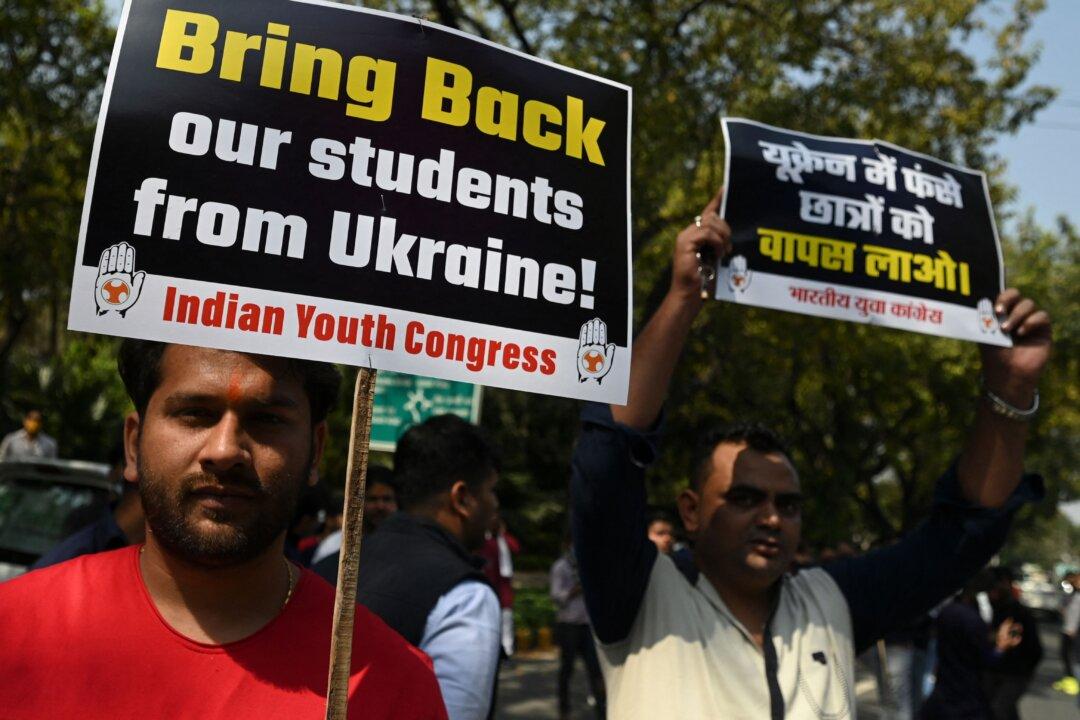NEW DELHI—India’s refusal to criticize Russia for its invasion of Ukraine has meant the country has had to walk a diplomatic tightrope balancing relations with its traditional partner Russia and its core partner in the Indo-Pacific, the United States.
The most important and immediate consequence of this diplomatic posture resulted in ensuring rescue efforts for some 20,000 stranded Indian students from Ukraine who experts said were at risk of being taken as hostages by militias that form part of the Ukrainian forces.





